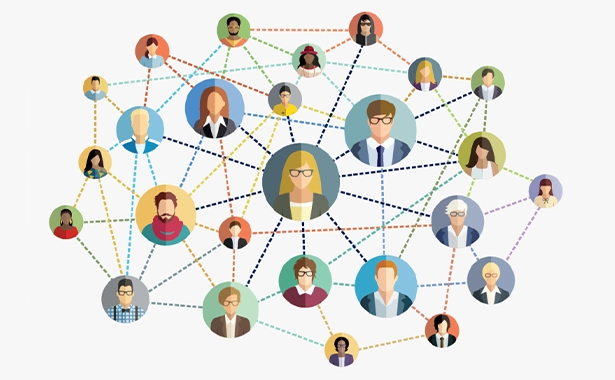Contents
Legal networking is more than exchanging business cards or connecting on LinkedIn. It is a strategic effort that helps attorneys build referral networks, find mentors, and stay updated on legal industry trends. A structured attorney networking strategy ensures that every connection serves a professional purpose, whether it leads to client referrals, collaborative opportunities, or knowledge sharing.
However, many attorneys struggle with networking consistency, balancing in-person and digital engagement, and finding the right communities to participate in. This guide provides a structured approach to law firm networking, helping attorneys build meaningful, long-term connections that align with their career goals.
Crafting Your Networking Strategy
Set Clear Objectives
Before engaging in legal networking, attorneys should define specific goals to guide their efforts. Common objectives include:
- Referral Building – Establish connections that generate client referrals from attorneys in complementary practice areas.
- Mentorship and Career Growth – Learning from experienced legal professionals to gain insights and career advice.
- Knowledge Sharing – Engaging with other attorneys to discuss case strategies, industry changes, and emerging legal trends.
Attorneys who network with clear intentions are more likely to develop meaningful, beneficial relationships rather than just collecting contacts.
Align Networking with Your Career Stage
Networking strategies should evolve as an attorney progresses in their career.
- New Attorneys – Focus on mentorship, CLE events, and legal networking groups to gain foundational knowledge and early connections.
- Mid-Career Attorneys – Strengthen referral networks, contribute to legal publications, and explore leadership roles in bar associations.
- Senior Attorneys – Engage in law firm networking by mentoring young lawyers, speaking at conferences, and forming strategic partnerships.
Define three networking goals for the next six months.
- Join a legal association and attend at least two networking events.
- Connect with three attorneys in complementary practice areas for referral-building opportunities.
- Speak at an industry event or host a webinar to share legal insights.
In-Person Networking
Building a strong professional network is essential for career growth, referrals, and staying informed on legal industry trends. Whether networking in person at bar association events or leveraging digital platforms like LinkedIn, attorneys must take a strategic approach. This guide covers in-person and online networking, relationship management, and technology-driven solutions to help attorneys build and maintain a strong professional network.
Online Networking
LinkedIn Optimization
LinkedIn is the leading legal networking platform, making profile optimization essential for visibility and credibility.
Best Practices for LinkedIn:
- Use a Professional Profile Photo & Keyword-Rich Headline – Enhances searchability and first impressions.
- Post Thought Leadership Content – Share legal insights, case updates, or industry trends.
- Engage With Peers – Comment on posts, join discussions, and send personalized connection requests.
Dedicate 15 minutes weekly to engaging with LinkedIn legal groups, commenting on relevant discussions, and sharing original insights.
Legal Forums and Communities
Beyond LinkedIn, attorneys can connect with industry peers through niche legal networking forums on platforms like Reddit, legal tech communities, and practice-specific groups.
How to Stand Out:
- Provide Value Over Self-Promotion – Share insights, legal analysis, and resources.
- Be Consistent – Regular engagement builds recognition as a knowledgeable legal professional.
Join at least one legal forum and contribute one meaningful monthly post to establish your authority.
Building Long-Term Relationships
Follow-Up and Engagement
Networking is not just about making connections—it’s about maintaining them. Attorneys should have a structured follow-up process to stay in touch with their professional networks.
Best Practices for Follow-Ups:
- Use a CRM system to track conversations and schedule reminders.
- Personalized follow-ups—reference a past discussion or offer valuable insight.
- Leverage RunSensible to automate follow-ups with clients and legal peers.
Providing Value to Your Network
Attorneys who value reciprocity build strong professional relationships. In networking situations, attorneys should focus on giving before receiving.
Ways to Provide Value:
Share relevant resources like legal articles or case studies.
Introduce connections to each other when there is a mutual benefit.
Host webinars or panels to engage with peers and share expertise.
Schedule follow-ups with new contacts within one week of the meeting. In each follow-up, offer one useful resource or introduction.
Leveraging Technology
Traditional business cards can be lost or forgotten. Digital business cards provide a modern, environmentally friendly alternative.
Why Use Digital Business Cards?
- Easy to share via QR codes.
- Instantly saves contact information without clutter.
Networking Event Apps
Legal conferences and events often offer networking apps that help attendees connect before, during, and after the event.
How to Use Networking Apps Effectively:
- Identify attendees you want to meet in advance.
- Schedule meetings ahead of time.
- Use post-event analytics to refine your networking strategy.
Set up a digital business card and test it at your next networking event. Download a legal networking app before attending a conference.
Maintaining Professional Etiquette
Effective networking requires professionalism and ethical awareness. Attorneys must navigate networking opportunities while maintaining ethical boundaries.
Networking Etiquette Guidelines:
No Solicitation in Restricted Settings – Respect rules about marketing legal services.
Avoid Persistent or Aggressive Follow-Ups – Respect professional boundaries.
Be Authentic – Focus on building genuine relationships based on trust mutual interest and understanding rather than just selling legal services.
When reaching out to a new contact, use the “Give First” approach—offer insight, an introduction, or a resource before asking for anything in return.
Final Thoughts
Successful networking requires planning, consistency, and genuine engagement. Attorneys who invest time in legal networking in person and online will build stronger referral networks and professional relationships.
Next Steps:
- Evaluate your current network and identify gaps.
- Set clear networking goals for the next six months.
- Dedicate time weekly for networking activities, whether online or in-person.
By taking a structured approach, attorneys can increase referrals, expand professional opportunities, and strengthen their law firm networking efforts.
Ready to take your legal networking to the next level? Start building meaningful connections today with these proven attorney networking tips. Whether online or in person, take action now—connect, engage, and grow your legal network with RunSensible!
FAQs:
1. How can attorneys effectively leverage social media platforms for networking?
Attorneys can enhance their professional network by actively engaging on platforms like LinkedIn. This involves sharing insightful content, participating in relevant group discussions, and connecting with peers and potential clients. Regular interaction on these platforms helps in building a reputable online presence and fosters meaningful professional relationships.
2. What strategies can attorneys employ to maintain long-term professional relationships?
Maintaining long-term professional relationships requires consistent and genuine engagement. Attorneys should schedule regular follow-ups, offer valuable resources, and seek opportunities for collaboration. Utilizing Customer Relationship Management (CRM) tools can aid in tracking interactions and automating personalized communications, ensuring relationships remain strong over time.
3. How can attorneys balance in-person and online networking efforts?
A balanced approach involves integrating both in-person and online networking into one’s routine. Attorneys might attend local bar association events and industry conferences for face-to-face interactions while also engaging in online forums and social media platforms. This dual strategy ensures a broader reach and the cultivation of diverse professional connections.
4. What role does mentorship play in attorney networking, and how can one find a mentor?
Mentorship is pivotal in professional development, offering guidance, knowledge sharing, and career advancement opportunities. Attorneys can find mentors by participating in legal associations, attending industry events, and engaging in professional online communities. Building genuine relationships and expressing a willingness to learn can attract potential mentors willing to share their expertise.
5. How can attorneys utilize technology to enhance their networking strategies?
Attorneys can leverage technology by using digital business cards, networking event applications, and CRM systems. Digital business cards facilitate easy sharing of contact information, while event apps help in identifying and connecting with attendees. CRM systems assist in managing contacts and automating follow-ups, streamlining the networking process.
6. What are some effective methods for attorneys to provide value to their professional network?
Providing value can be achieved by sharing relevant resources, offering introductions between contacts, and hosting informative webinars or workshops. By contributing positively and selflessly to their network, attorneys can foster reciprocity and strengthen professional ties.
Disclaimer: The content provided on this blog is for informational purposes only and does not constitute legal, financial, or professional advice.







